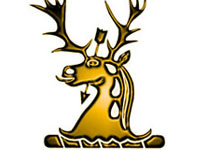2006 RNCM Festival of Brass: Black Dyke Band
2-Feb-2006Conducted by Dr. Nicholas J Childs
Soloist: David Thornton
Sunday 29th January
 The concluding concert in this feast of music for brass connoisseurs came from the reigning European and British Open Champions, Black Dyke. At times during the concert, they were nothing short of stunning, performing to a level that brought them victories in 2005, and if they can take this form on to the competition platform this year, they will be once again tough to beat.
The concluding concert in this feast of music for brass connoisseurs came from the reigning European and British Open Champions, Black Dyke. At times during the concert, they were nothing short of stunning, performing to a level that brought them victories in 2005, and if they can take this form on to the competition platform this year, they will be once again tough to beat.
Arthur Butterworth's ‘The Royal Border Bridge' from his ‘Three Impressions for Brass Band' is music that brings an insight into the energy and beauty of man's ability and preoccupation with engineering. The visualisation of a steam train crossing the bridge had that sense of energy, but was so smooth in its execution. If there was a question about some of the rhythmic accuracy at times, it never undermined the music.
David Thornton was at his imperious best during Wilby's ‘Euphonium Concerto', having the audience in the palm of his hand. Here was an artiste painting a wonderful picture. The technical demands of the piece were overcome effortlessly, even at such high tempos. It was so slick yet so polished, and as with David Childs they previous day, the audience were treated to a euphonium master class.
Two years ago at this Festival, Fairey (FP) Music Band gave the world premiere of Heaton's 'Variations' realised by Howard Snell.
Heaton's death in 2000 meant the work was unfinished, but Howard Snell had the score in safekeeping and concluded the various unfinished sketches, enabling it to be performed. This is a colossal piece of music for band, lasting thirty minutes, and is vintage, if very personal Heaton. It has twelve variations in total, with numbers eight and twelve requiring the most understanding of what the composer intended. If ever there was a reason Radio 3 should have recorded the Festival, this was it. You identify Heaton's musical forms immediately, and by the time the band was in the third variation, it was edge of the seat stuff, fast, lively, with brilliant technique and understanding of the music from the MD and the band.
Each variation has something totally different. The second section is certainly as memorable as variations eight and twelve. Variation eight contains a strong Yorkshire theme with the tune "On Ilkley Moor", amongst others which Dyke pulled off superbly.
Towards the end of some of the early variations, some of the playing wasn't as tight as it might have been and by the end of the twelfth variation, a musical ‘Amen', there was just a hint of tiredness in evidence. It was though engrossing listening throughout with some superb playing from Richard Marshall, John Doyle, Brett Baker, David Thornton, Gareth Brindle and Peter Roberts. It was announced that the band are due to record the work, and it will certainly create plenty of discussion when the recording is released.
Apart from the Heaton, Holst's ‘Moorside Suite' for this reviewer, was the other outstanding highlight of the Dyke concert. Over the whole weekend, Dyke were arguably the finest exponents of pianissimo playing, none more so in the middle ‘Nocturne' where the new incumbent to the principal cornet's seat performed so beautifully.
Philip Wilby's ‘Music For The Moving Image' was written for the World Brass Band Championships in Kerkrade last summer. In the presence of the composer, it received a fine reading. The music takes what can be described as a cinematic (even progressive) view to landscapes that are continually changing and it revealed itself as a work of major importance.
It was music from Sir Malcolm Arnold that was the official closing item, courtesy of his ‘Four Cornish Dances'. The second dance (Andantino) featured some lovely muted cornet work whilst ‘Con moto e sempre senza parodia' – depicting a hymn tune was delightful on the ear.
Finally Black Dyke acknowledged the musical genius of Mozart with his overture to ‘The Marriage of Figaro' for their encore, which featured some fabulous playing from Peter Roberts and was taken at such a tempo that its doubtful even a Symphony Orchestra would be brave enough to move through the gears as quickly as was reproduced on this occasion.
It concluded an excellent contribution to the Festival by the British Open and European Champions.
Malcolm Wood









